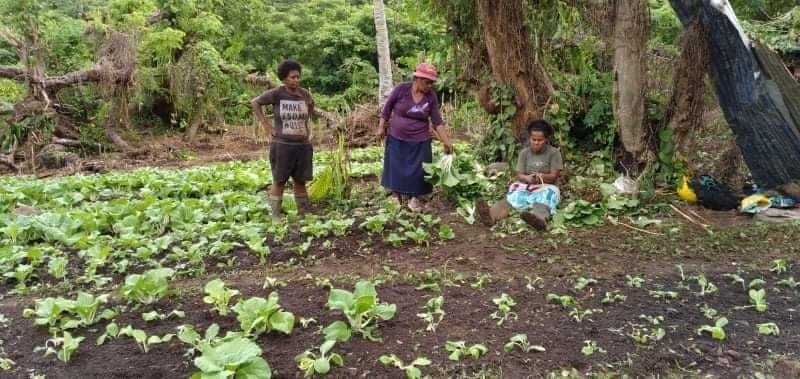Training on income generation activities conducted on Koro Island during the lockdown has been hailed as a success as the people on the island have started reaping the benefits from it.
The program – climate smart agriculture – introduced under the Learning Environmental Adaptation and Development (LEAD) of CSOs in Fiji project, saw 196 farmers on the island involved in the set of four demonstration farms in the two districts of Cawa and Mudu to showcase the impact of training.
Isikeli Cawanikawai, 60, of Tuatua Village and a member of the Dewala Farming Cluster, said they had been selling their harvest for the past two weeks.
“We plant Chinese cabbage, capsicum, lettuce, round cabbage, corn and tomatoes. For the past two weeks, we have managed to sell 356 bundles of Chinese cabbage around the island at $2 and we have $730 cash on hand from our sale,” Mr Cawanikawai said.
“We are thankful to ADRA and European Union for this project because it has sustained us during this difficult period where movement is restricted.”
Project Marketing and Green Economy Development specialist Mesake Semainaliwa said the success of the project was gauged during the lockdown period where people greatly benefitted from the project.
“The intent of having demo farms is to introduce smart agriculture in the form of inter-cropping and develop assorted vegetable demo farms that is embedded on organic farming techniques for income generation. Communities obtained practical hands on training and knowledge on organic agriculture techniques oriented towards assorted vegetable varieties,” Mr Semainaliwa said.
“Since the second COVID-19 outbreak on April 17, people on the island have been able to address food security during the lockdown, generating economic activity and improving their livelihood.”
According information provided as part of the three-year project funded by the European Union, training on income generation activities to 14 Civil Society Organisations on Koro Island were conducted which included trainings on organic farming through practical approach (demo farm) as well as training and awareness on climate smart agriculture and improved soil techniques.
It was also highlighted that more than 3000 people are expected to directly benefit from this LEAD project funded by the European Union, ADRA Germany and ADRA Austria focusing on climate change mitigation and adaption and governance development as part of the TC Winston rehabilitation.
It enables Civil Society Organisations (CSOs) in Fiji to engage as actors of change for the people by identifying possible solutions for supporting the transition to an economy that is climate resilient, circular and leads to low carbon emissions.
This is done through community-centred actions in Koro Island, focusing on capacity building for climate smart agricultural techniques, diversified green income generation activities, recycling and waste management systems as well as coastal rehabilitation.



